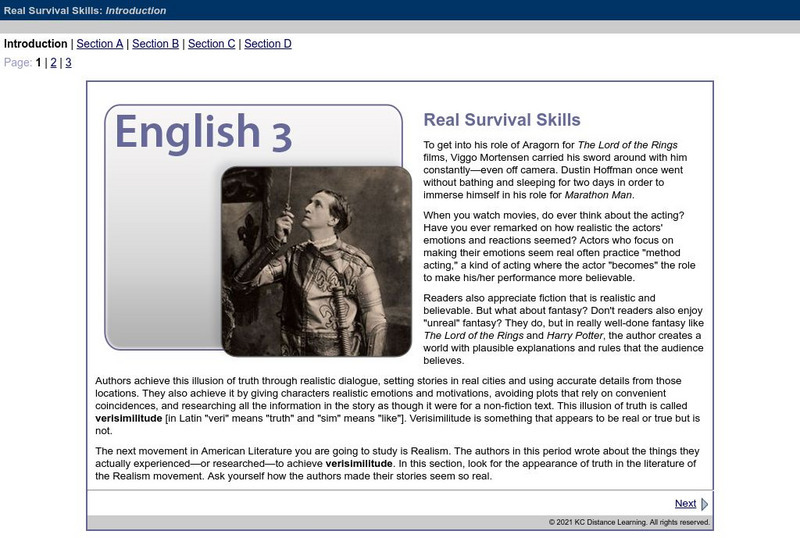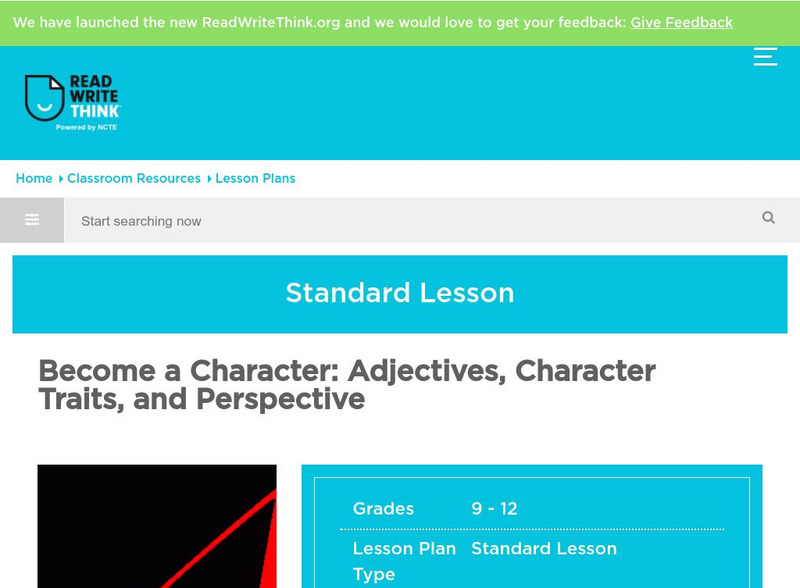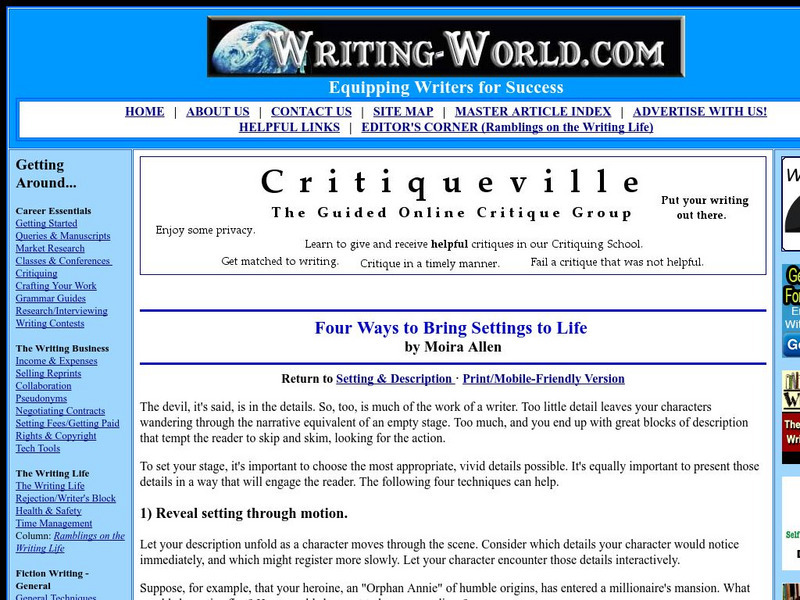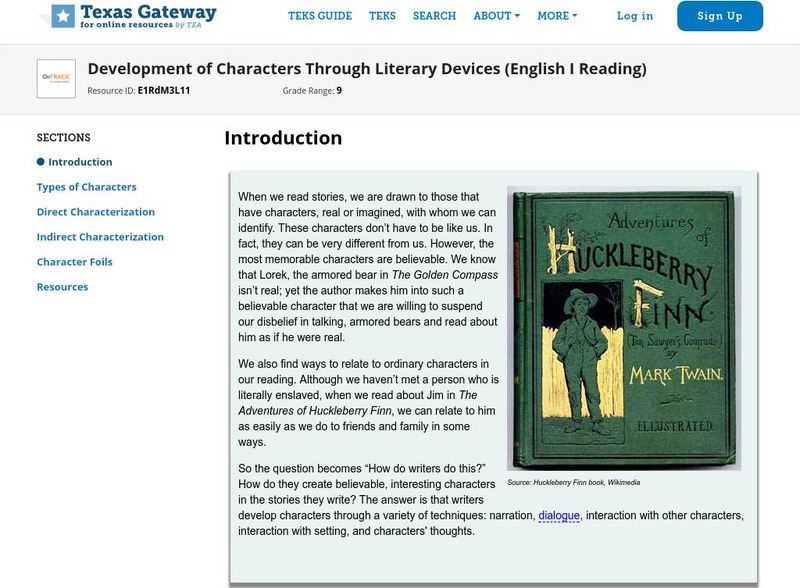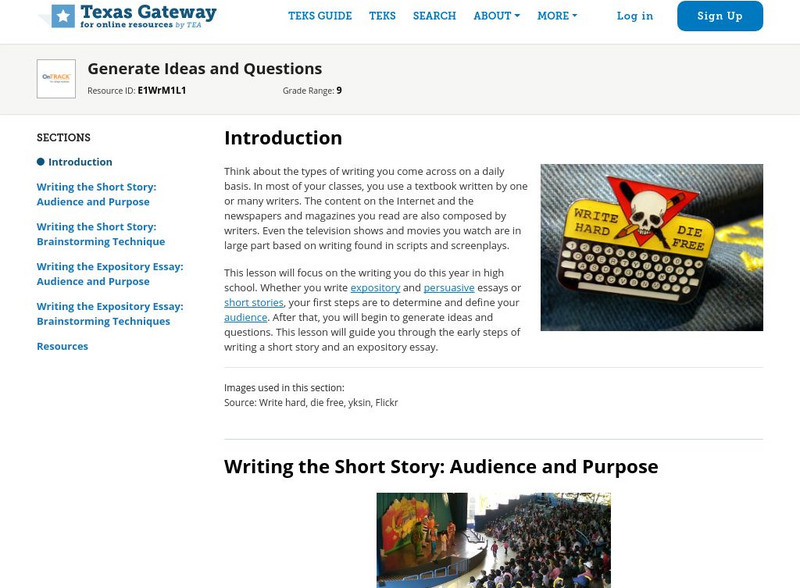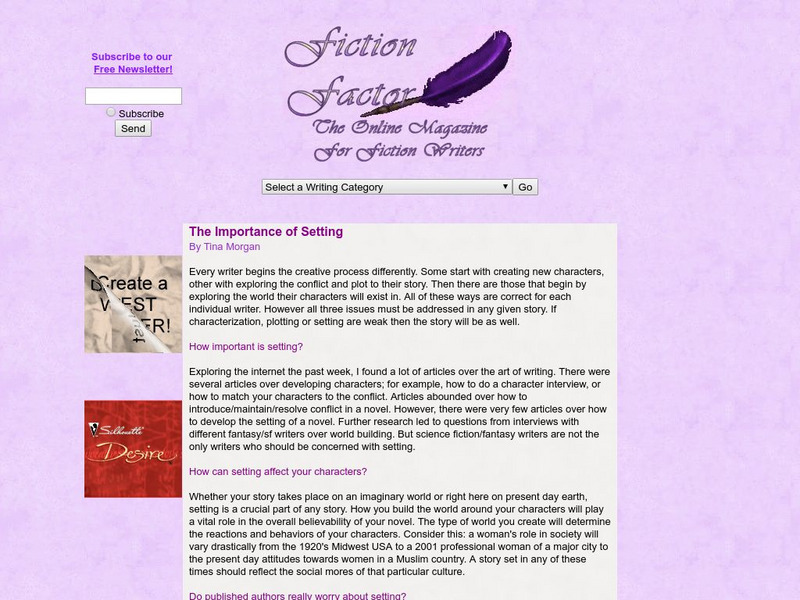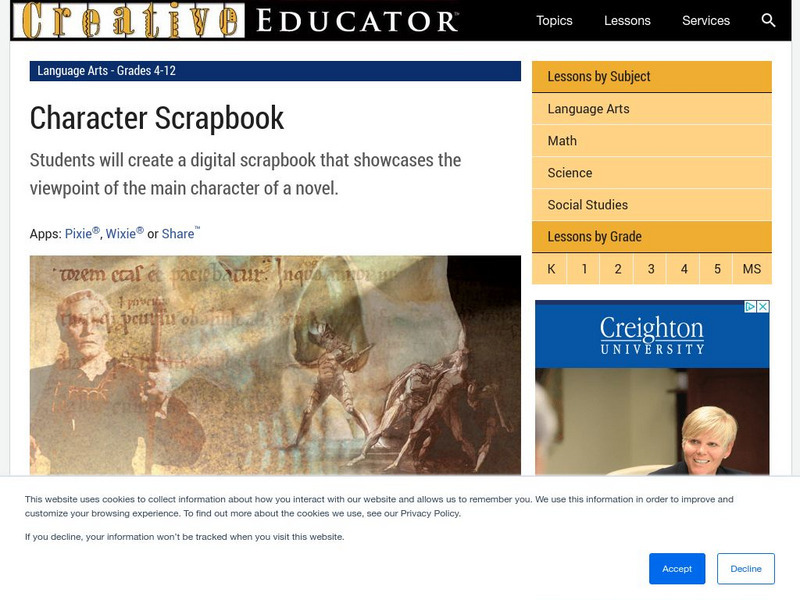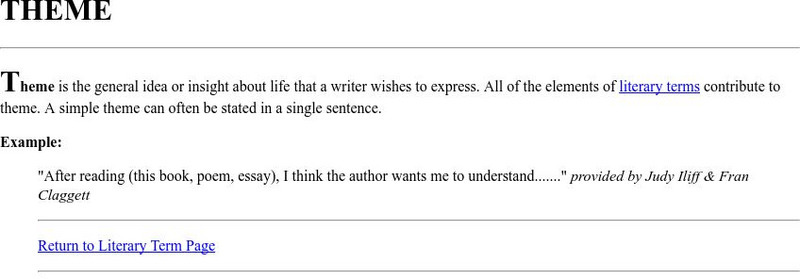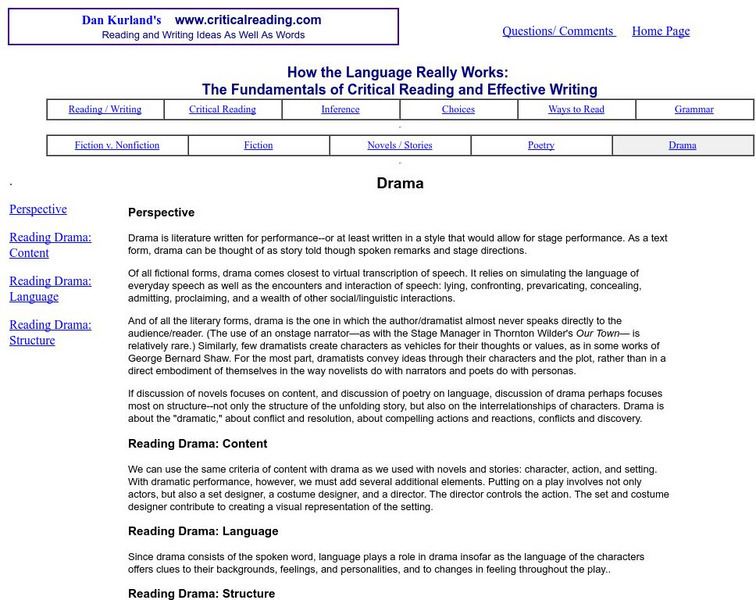Broward Education Foundation
Broward Education Foundation: The Arts and Crafts of Storytelling [Pdf]
In the Arts and Crafts of Storytelling, American folk heroes come to life, help students expand their vocabulary and increase knowledge of figurative language. Students identify figurative language like similes, idioms and hyperboles....
Department of Defense
Do Dea: Real Survival Skills
Learn about process analysis, writing procedurals texts, the steps of the writing process, and cause and effect in this unit. Also, examine patterns of organization in writing. A handy chart shows common organizational patterns which...
Other
Wisewire: Grades 9 10 Playlist: Analyze How an Author Unfolds an Argument
This is an example of how to analyze how an author unfolds an argument. It provides an example and links to use for practice. RI.9-10.3 author unfolds
ReadWriteThink
Read Write Think: Unlocking Symbolism/themes in Drama
Online lesson which uses Hansberry's "Raisin in the Sun" to teach the concepts of symbolism and theme in a dramatic work. Students learn the importance and significance of these terms as they study this work and other works of drama....
ReadWriteThink
Read Write Think: Become a Character
In this online lesson plan and activity, students actually "become" a character from a novel in their analysis of characterization. The lesson plan uses the Scarlet Letter, but any novel can be used. RL.9-10.3 Analyzing Characters,...
Other
Writing World: Four Ways to Bring Settings to Life
A great resource outlining four major ways to make settings appear more real and genuine in fiction. Deals with themes such as motion, experience, mood, and the senses. W.11-12.3d Sensory/precise lang narratives
Texas Education Agency
Texas Gateway: Development of Characters Through Literary Devices
This lesson focuses on how writers develop characters through a variety of techniques: narration, dialogue, interaction with other characters, interaction with setting, and character's thoughts.
Texas Education Agency
Texas Gateway: Generate Ideas and Questions
This lesson will focus on the writing you do in high school. Whether you write expository and persuasive essays or short stories, your first steps are to determine and define your audience. After that, you will begin to generate ideas...
Common Sense Media
Common Sense Media: Character Development and Relationships in Hamlet
A lesson plan relating to Hamlet whose objective is to able to "analyze how and why individuals, events, and ideas develop and interact over the course of a text". Lesson includes a hook, direct instruction, guided practice, and...
Other
Fiction Factor: The Importance of Setting
An interesting article concerning the importance of setting to any piece of fiction. Gives good information about how setting affects characters and "world-building."
Other
Short Story Elements
Geared toward high school students, this site contains many notes and links on the aspects of short story, figurative language, and figures of speech.
Virginia Tech
Pixel: Fiction and Nonfiction Reading and Organizing
Short summary of different skills involved in reading fiction vs. non-fiction. Includes study tips and an organizational guide to use when reading.
Georgia Department of Education
Ga Virtual Learning: "Elements of Drama" [Pdf]
This two-page PDF provides a list and brief explanation of the "Elements of Drama" based on the structure of Greek Drama as outlined by Aristotle. These include: Thought, Theme, Ideas; Action, Plot; Characters, Language, Music, and...
HotChalk
Hot Chalk: Lesson Plans Page: The Nature of the Antagonist
This lesson plan teaches learners to understand the differences between protagonists and antagonists, to recognize a "villain" in storytelling, and to understand conflict as used in literature.
Other
The Neverending Tale
This is a fun site geared primarily for students 8-16. It allows students to read and add to stories already begun by others and to decide what path the story takes. Because there are some rules and procedures to follow, this site is...
Alabama Learning Exchange
Alex: Literary Elements in Literature
This lesson plan is applicable to any story or novel in literature. The students will be introduced to twelve literary elements through a podcast. They will then be divided into small groups to complete activities involving story and...
Alabama Learning Exchange
Alex: Analyzing Characters in 12 Angry Men
Re-telling a story from the points of view of its various characters is a powerful way to review the events of a story, show how authors use characterization to reveal characters' personalities, and encourage students to view stories...
Tech4Learning
Tech4 Learning: Creative Educator: Character Scrapbook
When we read novels, authors provide details about the main character through descriptive sentences, events that directly involve the character, and what other characters think and say about the main character. To show what you know...
Louisiana Department of Education
Louisiana Doe: Louisiana Believes: Guide for Determining Text Complexity
An educator's guide to help determine the level of text complexity.
Ted Nellen
Cyber English (By Ted Nellen): Bildungsroman
This is a glossary entry for the term "Bildungsroman" referring to characteristics of a "Coming Of Age" type story. A link to more information is provided.
Ted Nellen
Cyber English (By Ted Nellen): Setting
This is a glossary entry for the term "Setting," the time and place a story takes place.
Ted Nellen
Cyber English (By Ted Nellen): Theme
This is a glossary entry for the term "Theme" including a definition and an example.
Writing Fix
Writing Fix: Serendipitous Personification for Stories and Descriptions
Students will use this writing prompt generator to create a personification story or description.
Other
Critical reading.com: Drama
Discusses what the literary form of drama consists of in relation to its content, language, and structure.


![Broward Education Foundation: The Arts and Crafts of Storytelling [Pdf] Lesson Plan Broward Education Foundation: The Arts and Crafts of Storytelling [Pdf] Lesson Plan](https://d15y2dacu3jp90.cloudfront.net/images/attachment_defaults/resource/large/FPO-knovation.png)
